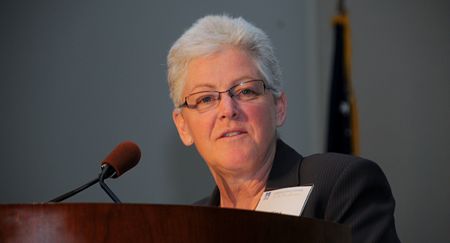Climate change could cost the U.S. $180bn, says EPA report
White House and U.S. Environmental Protection Agency report analyses economic costs of climate change across 20 sectors

Climate change could cost the United States $180 billion by 2100, according to a report released on Monday by the White House and U.S. Environmental Protection Agency.
The U.S. could face the economic losses because of drought and water shortages in the absence of global action to reduce greenhouse gas (GHG) emissions.
The Climate Change in the United States: Benefits of Global Action report uses existing scientific and economic studies on the projected impacts of unchecked GHG emissions and compares these with a projected future in which GHG emissions are limited to prevent a rise in average global temperatures of 2°C that scientists warn would cause catastrophic climate change.
The report assesses the economic costs of climate change across 20 sectors of the U.S. economy.
The study was conducted by the Office of Atmospheric Programs at the EPA, researchers from the Massachusetts Institute of Technology and scientific laboratories at the Energy Department.
The report found that global policy to address climate change could prevent 12,000 deaths from extreme heat and cold.
The study said that the implementation of effective global climate policies could prevent up to 2,200 bridges from becoming structurally vulnerable for an estimated savings of $1.1 billion to $1.6 billion by 2100.
The report also found that costs of $50 million to $6.4 billion could be prevented by effective climate policy that would limit damage to urban drainage systems, which could be flooded by storms.
The report found a 40 per cent to 59 per cent reduction in probability of extreme drought if climate change is mitigated, which would otherwise cost farmers in the U.S. $2.6 billion to $3.1 billion by the end of the century.
The study said that climate change could cause significant wildfires and the destruction of up to 7.9 million acres of forest, at an estimated cost of around $1.4 billion.
According to the report, unchecked GHG emissions could also lead to the destruction of ecosystems including coral reefs at a loss of around $1.2 billion.
The EPA is expected to unveil a set of regulations in August designed to reduce emissions from coal-fired power plants, the largest contributor of GHGs in the U.S.
The regulations would form the centrepiece of Obama’s climate change policy and could lead to the closing of hundreds of power plants.
The regulations will also force utility companies to build new renewable energy applications to generate electricity including wind, solar, nuclear and natural gas plants.
Gina McCarthy, the administrator of the EPA (pictured), said: “The results are quite startling and very clear,” said in a news briefing with reporters. “It’s very clear that climate action now pays. It saves lives and cuts costs. These are really big numbers, and we can limit the losses if we act now.”
The Obama administration announced last week that US$4 billion has been secured for clean energy investment and a new set of policies will be introduced to support emissions reduction projects.
The White House has secured the funding from a range of investors including Goldman Sachs and the University of California and is double the $2bn target set in February, according to government officials.
The new policies will ensure that support is provided advice and expertise to companies looking to invest in clean tech projects.
As part of the new scheme, Goldman Sachs could help to finance $500m in firms that develop clean technologies such as smart grids.
The U.S. has submitted a pledge to the United Nations to reduce greenhouse gas emissions by 26 to 28 per cent by 2025 based on 2005 levels as part of a global climate deal due to be signed at a key summit in Paris in December.
The 21st Session of the Conference of the Parties (COP21) to the United Nations Framework Convention on Climate Change (UNFCCC) takes place in the French capital later this year and a global deal to limit greenhouse gas (GHG) emissions is expected to be agreed.


